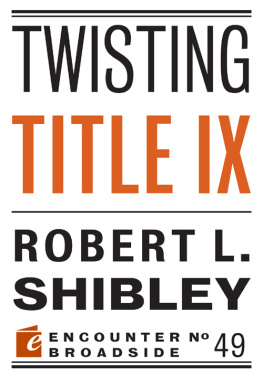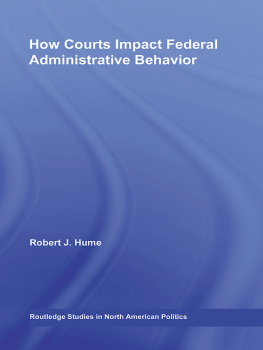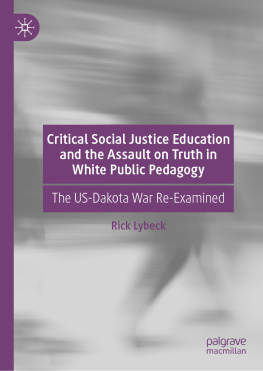

ENCOUNTER BROADSIDES Inaugurated in the fall of 2009, Encounter Broadsides are a series of timely pamphlets and e-books from Encounter Books. Uniting an 18th century sense of public urgency and rhetorical wit (think The Federalist Papers, Common Sense) with 21st century technology and channels of distribution, Encounter Broadsides offer indispensable ammunition for intelligent debate on the critical issues of our time. Written with passion by some of our most authoritative authors, Encounter Broadsides make the case for ordered liberty and the institutions of democratic capitalism at a time when they are under siege from the resurgence of collectivist sentiment. Read them in a sitting and come away knowing the best we can hope for and the worst we must fear.

D AVE W EBER (not his real name) knew he was in trouble. An underclassman at Stanford University, Dave, like many others, harbored ambitions of graduating and going on to success in Silicon Valley. But in February 2011, he received notice from Stanford that a female student had filed a sexual assault charge against him, alleging that a sexual encounter six weeks before had been, unbeknownst to Dave, nonconsensual.
How, one might ask, could someone unknowingly commit sexual assault? To Stanford, it was simple: both Dave and his accuser had been drinking. Stanfords policy at the time stated, A person is legally incapable of giving consent if intoxicated by drugs or alcohol. This seemingly straightforward statement is far vaguer than it sounds, most importantly because it is not actually true. People who are merely intoxicated to some extent in other words, people who have been drinking anything alcoholic at all legally consent to sex all the time. California law, as with that of virtually every state, recognizes this, specifying that when it comes to the lack of ability to consent to sex, [i]t is not enough that the victim was intoxicated to some degree, or that the intoxication reduced the victims sexual inhibitions. Even the most intense crusader against campus sexual assault would be hard-pressed to defend the idea that sexual activity after any amount of alcohol or drugs constitutes rape.
So Dave thought he had a reasonable chance at his hearing. The policy had obviously been carelessly drafted, and Stanford campus tribunals, like the criminal justice system, required that disciplinary charges be proved beyond a reasonable doubt. Dave hired a lawyer and was able to gather witness statements and other evidence for his hearing that, he thought, would demonstrate that even though his accuser had been drinking, she wasnt too drunk to consent. He received more good news in March, when the local district attorney informed Daves attorney that no criminal charges would be filed. His campus hearing was scheduled for Apr. 11, 2011.

OCRs letter would serve as the starting whistle for a new age of federal intervention in academia.

What Dave didnt know was that his hearing would come exactly one week too late, and that a fluke of scheduling would change the course of his life. Because on Apr. 4, 2011, the U.S. Department of Educations Office for Civil Rights (OCR) issued a letter unlawfully mandating that the standard of proof in campus sexual misconduct cases be set at the lowest possible level: a preponderance of the evidence, or a mere 50.01 percent likelihood of guilt. Stanford immediately applied this standard of proof to Dave, right in the middle of his case, leading to his conviction in a campus kangaroo court. As it turned out, this letter would serve as the starting whistle for a new age of federal intervention in academia an era that would see OCRs actions destroy the academic careers (and, in some cases, the lives) of countless students like Dave accused of sexual misconduct, prompt administrators at nearly every American college and university to rush headlong toward censorship and grossly unfair treatment of students, and stand as one of the most unrepentant abuses of the regulatory system in recent times. All in the name of a 1972 law called Title IX.
W HAT I S T ITLE IX AND W HERE D ID I t C OME F ROM?
Title IX is the primary federal law intended to prohibit sex discrimination in federally funded education programs. The operative part of the law (which is followed by myriad exceptions) is a mere 37 words long:
No person in the United States shall, on the basis of sex, be excluded from participation in, be denied the benefits of, or be subjected to discrimination under any education program or activity receiving Federal financial assistance.
Since federal funding includes ordinary grants to schools or school districts as well as student-directed funds such as Pell grants and Stafford loans, Title IX applies to all public schools, from the K12 level all the way through graduate school, as well as to the overwhelming majority of private universities in the United States. The number of private universities that do not at least accept federal student loans may well be in the single digits. Since losing such funding would generally be a death sentence for all but the richest schools, Title IX and its interpretations have become the main cudgel with which federal bureaucrats beat colleges and universities into submission to their policy objectives. Compared to that threat, the once-substantial influence that the First Amendment and other constitutional principles had on private university policies has been vastly reduced.
Until quite recently, when most people thought of Title IX, it was generally in the context of college athletics. It is, most notoriously, the reason many colleges have more womens NCAA sports than mens. Because fielding a football team requires many substantial athletic scholarships, and because the current interpretation of Title IX effectively requires schools to provide athletic scholarships for men and women in numbers proportionate to their percentage of all students, female students can often receive athletic scholarships for nonrevenue sports like rowing or lacrosse when men cannot. Women have outnumbered men in college since 1979 and currently make up 57 percent of undergraduates (higher at some schools), so the seemingly easier access to scholarships for women has long been controversial.
Indeed, early discussions of Title IX in the press focused overwhelmingly on its impact on college athletics, as a search of the New York Times archive from the first half of the 1970s indicates. But it wasnt long before activists for womens issues found in the law a tool for combating a number of other social ills, starting with sexual harassment.
* * *
A F AMOUS F EMINISTS P LAN
In the 1977 case of Alexander v. Yale, using a framework developed by then Yale law student (and later famed feminist activist and antiporn crusader) Catharine MacKinnon, a federal court found that colleges could be liable under Title IX not just for allowing overt discrimination but also for not responding to allegations of sexual harassment by professors. In that case, the issue that survived the preliminary pleadings was an allegedly straightforward offer by a professor to give student-plaintiff Pamela Price an
Next page







